Recycling technology Novozymes BioBased Adipic Acid Sustainability Biodegradable packaging Latex 22-12-2021 - Arhive
Recycling technology Novozymes BioBased Adipic Acid Sustainability Biodegradable packaging Latex
-OMV scales up innovative ReOil® recycling technology at Schwechat refinery
- ReOil® technology converts plastics into synthetic feedstock for the petrochemical industry
- Demo plant with a capacity of 16,000 t/year to start operations in 2023
- OMV entered into its first-ever green loan agreement to finance this next step towards circular economy
OMV, the international, integrated oil, gas and chemicals company headquartered in Vienna, has taken the final investment decision to build a chemical recycling demo plant, based on its proprietary ReOil® technology. With this, OMV is taking the next step toward an industrial-scale plant planned for 2026.
The patented chemical recycling technology, developed by OMV, converts plastic waste into synthetic feedstock, under moderate pressure and normal refinery operating temperatures, which is then primarily used to produce again high-quality plastics. Recycling technology Novozymes BioBased Adipic Acid Sustainability Biodegradable packaging Latex
OMV was among the first companies to develop a chemical recycling technology for used plastics more than a decade ago. A ReOil® pilot plant has been operating in the Schwechat refinery since 2018, capable of processing 100 kg of used plastics into 100 liters of synthetic feedstock per hour. The pilot plant has been running for a total of 13,000 hours since its commissioning and thus enabled an improvement in the thermal cracking process and supported the further scale up of the ReOil® technology.
The current investment covers the construction of a ReOil® demo plant with a design capacity of 16,000 t/year at the OMV site in Schwechat, Austria. Production startup is planned for early 2023. To finance this project, OMV entered into its first-ever green loan agreement which is in alignment with the green loan principles and based on a green and project-specific external due diligence appraisal, so-called Second Party Opinion, and a project-specific green financing framework.
The demo plant will turn plastic waste that is not fit to be mechanically recycled and would otherwise be sent to waste incineration into a valuable resource. The feedstock will be sourced in Austria, in close cooperation with local waste management companies, and will consist mainly of polyolefins. Examples of such plastic waste include food packaging, plastic cups, lids from takeaway coffee and confectionery packaging. Recycling technology Novozymes BioBased Adipic Acid Sustainability Biodegradable packaging Latex
Through the chemical recycling of plastics, OMV obtains a pure raw material which can again be used to produce virgin-quality base chemicals and plastics for all types of applications including packaging for the food industry and medical products, which must meet the highest quality and safety standards.
“The ReOil® pilot plant has shown that we are on the right track with our in-house developed technology and with our efforts in this field.
We are confident that chemical recycling can complement the available mechanical recycling technologies and that it represents a sustainable and profitable solution. With the decision to build a demo plant, we are now taking the next step toward circular economy and thus toward reducing our CO2 emissions”, said Alfred Stern, CEO and Chairman of the Executive Board of OMV Aktiengesellschaft.
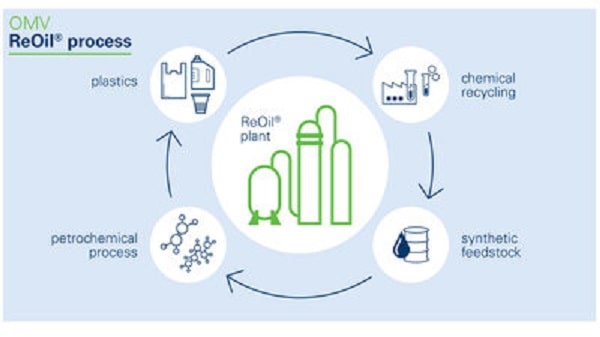
Recycling technology Novozymes BioBased Adipic Acid Sustainability Biodegradable packaging Latex
Novo Holdings, a leading international life sciences investor, today announced a significant investment in 21st.BIO A/S – a new Danish bioindustrial scale-up company. Recycling technology Novozymes BioBased Adipic Acid Sustainability Biodegradable packaging Latex
Established in 2020, 21st.BIO has been founded with a mission to support bioindustrial companies globally in upscaling from molecule innovation to large-scale production to be able to meet market demands and thereby advance the green transition globally. The focus areas of 21st.BIO include producing proteins and peptides that can be utilised for the food, materials and agricultural industries. It is estimated that as much as 60% of the physical inputs to the global economy could be produced biologically.[i]
Today, much of the transformational bioindustrial innovation is never commercialised because of the challenges that occur when production has to be scaled from the lab processes to full-scale manufacturing. The production environment in which the molecule was originally developed is often unable to deliver the right quality and at acceptable cost levels.
A common issue facing innovators in industrial biotech is also a lack of access to competencies and facilities to develop a molecule production process that can deliver the desired quality at the cost levels required to compete effectively.
Thomas Schmidt, co-founder, and CEO of 21st.BIO, said:
“Many brilliant industrial biotech ideas never succeed, because production challenges result in too high price points for the final product. Hence, a vast number of otherwise great innovations do not make it to a scale at which they are truly relevant for the world. At 21st.BIO, we can help establish the right technology for producing novel molecules and peptides and hence help innovators successfully make the difficult step from innovation to big business and impact for the planet. We have gained access to a selection of Novozymes’ unique technology platform on commercial terms, which means that a success for 21st.BIO is also a success for Novozymes.” Recycling technology Novozymes BioBased Adipic Acid Sustainability Biodegradable packaging Latex
The technology platform of 21st.BIO originates from selected parts of Novozymes platform, which has been developed and perfected over the past 40+ years.
Novozymes provides a co-exclusive licence to 21st.BIO within certain boundaries of applications, ensuring Novozymes’ ability to continue its leadership position in the areas where Novozymes operates.

Recycling technology Novozymes BioBased Adipic Acid Sustainability Biodegradable packaging Latex
The Global Bio-Based Adipic Acid market was valued at 1168.93 Million USD in 2020 and will grow with a CAGR of 8.87% from 2020 to 2027
Global Bio-Based Adipic Acid Market Report is segmented by, trends, latest analytics, top players, application usage, and various important geographical dividends. Bio-Based Adipic Acid market characteristics such as limitations, the future aspects of each section, and growth drivers have been covered in the report. combines market essential details, definitions, categorization, professional market study, and analysis of significant features.
The global Bio-Based Adipic Acid market was valued at 1168.93 Million USD in 2020 and will grow with a CAGR of 8.87% from 2020 to 2027, based on HNY Research newly published report. Recycling technology Novozymes BioBased Adipic Acid Sustainability Biodegradable packaging Latex
The prime objective of this report is to provide the insights on the post COVID-19 impact which will help market players in this field evaluate their business approaches. Also, this report covers market segmentation by major market verdors, types, applications/end users and geography(North America, East Asia, Europe, South Asia, Southeast Asia, Middle East, Africa, Oceania, South America).
Adipic acid is the most widely used dicarboxylic acid from the industrial perspective. Adipic acid is mainly used for the production of nylon which finds its application in composite materials which are used in manufacturing automobile components.High investment and R&D costs associated with the production of bio-based adipic acid are expected to pose challenges to the market participants. The global market is still in initial stages with adipic acid manufacturers such as DSM, Genomatica and Bio-Amber shifting their capabilities towards the production of its bio-based alternative.
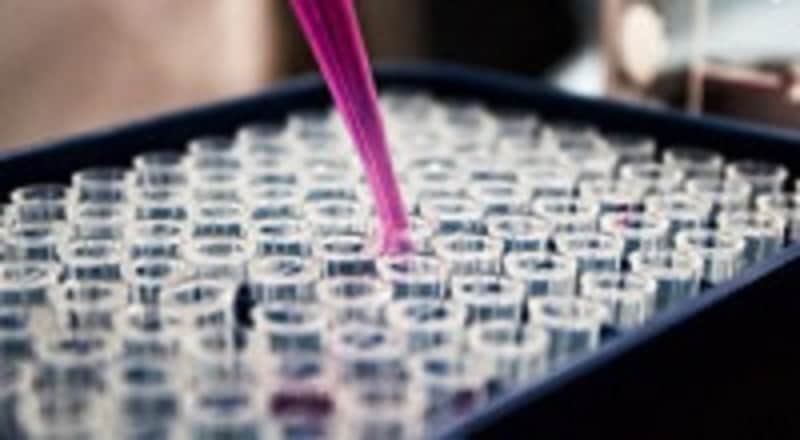
-Suominen outlines sustainability progress
Nonwovens manufacturer Suominen has outlined the recent progress made towards meting its ambitious sustainability targets.
“Sustainability means that Suominen does things efficiently and responsibly in terms of the environment, people, and the economy,” the company said. “All three dimensions are critical throughout the value chain, from raw material supply to end product.” Recycling technology Novozymes BioBased Adipic Acid Sustainability Biodegradable packaging Latex
As part of active work to reduce greenhouse gas (GHG) emissions, Suominen is shifting entirely to fossil-free electricity in all its European plants. “This shift is one of the measures we are taking to reduce our GHG emissions in the future,” said Juan Carlos Esteve, Director, HSEQ.
During 2021 Suominen launched 13 sustainable products with a complex variety of features. Suominen’s Hydraspun family was enhanced by two products. Suominen’s Hydraspun Aquaflo was designed to raise the standard of moist toilet tissue, passing the strictest flushability standard in the industry published by the International Water Services Flushability Group (IWSFG.) In addition, Aquaflo also passed the GD4 flushability standard of INDA/EDANA in independent testing.
Suominen’s second flushable product launched this year was Hydraspun Regal, which received the WRC Fine to Flush Manufacturer Generic Certification for nonwovens producers. With these launches, Suominen says it can justify its claim as a leading manufacturer of dispersible nonwovens.
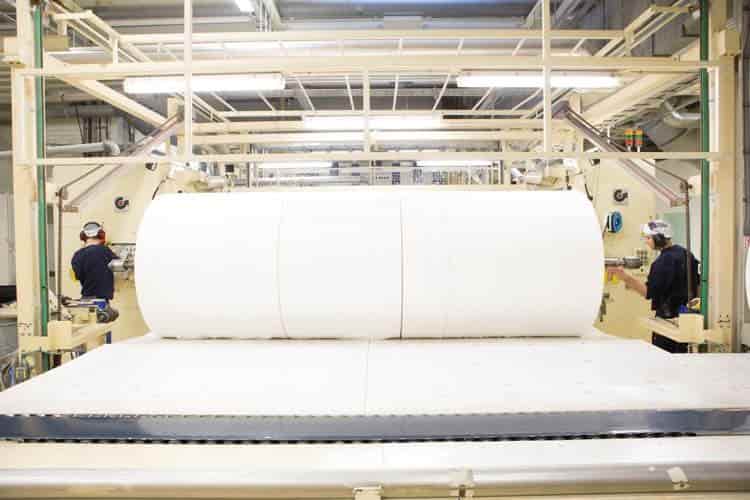
-Fully biodegradable food packaging developed in Russia
It is made of laminated cardboard, which decomposes in soil in six months
The first food packaging made of laminated cardboard, which decomposes in soil in six months, was developed in Russia, OSQ press service told TASS.
“Laminated craft packaging, when it gets into the ground, 100% decomposes within six months and has no analogs in Russia. For comparison, plastic food packaging begins to decompose in the ground only after 400 years. The products of the company’s previous brand underwent 70% decomposition in the environment,” the statement said. Recycling technology Novozymes BioBased Adipic Acid Sustainability Biodegradable packaging Latex
The company specified that the production of cardboard containers, cups, and other types of packaging has been established at the company’s plant in Vidnoye, Moscow Region. In the future, additional capacities will be added to the plant in Kaliningrad, investments in the construction amount to 1.1 bln rubles ($14.85 mln).
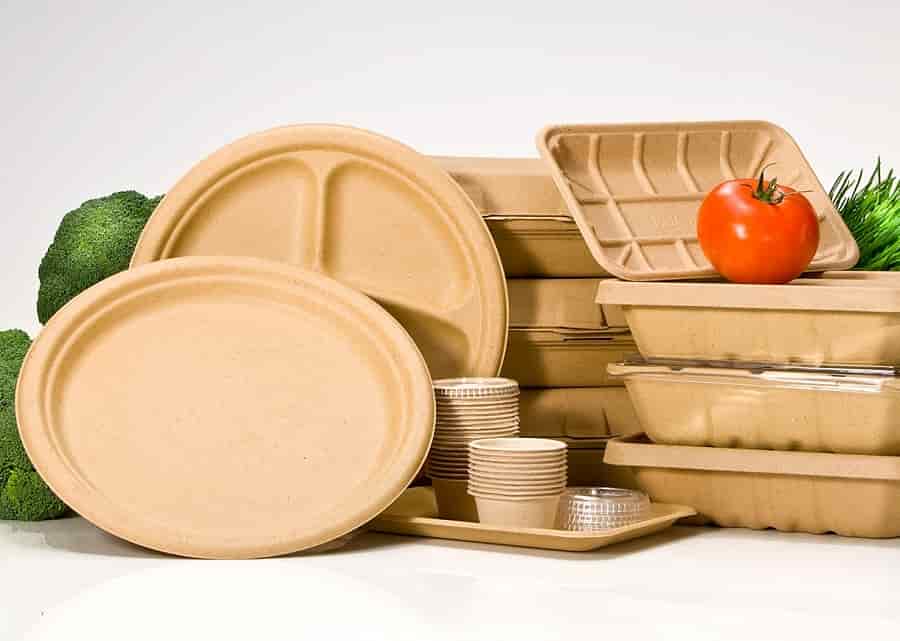
-Scientists from Yaroslavl invented biodegradable latex
Latex products can become biodegradable thanks to the development of scientists from the Yaroslavl State Technical University (YaGTU). The new film material contains natural fillers, thanks to which the decomposition products of the created polymer are safe for the environment. This was reported by RIA Novosti with reference to the press service of the university.
Gloves, packaging and other disposable items have a short cycle of use. By 2018, Russia generated more than 3 million tons of polymer waste, and they continue to accumulate: they decompose too slowly or do not decompose at all. In addition, due to the pandemic, the production of glove products has increased many times, which also increases the burden on the environment.
For the production of a new composite material, the developers used wood-processing industry waste – wood flour – as natural fillers. Waste from the food industry is also added, said Irina Korotneva, associate professor of the Department of Chemical Technology of Biologically Active Substances and Polymer Composites at YaGTU. Recycling technology Novozymes BioBased Adipic Acid Sustainability Biodegradable packaging Latex
Researchers simulated composting conditions in a laboratory and found that the polymer actually decomposes when exposed to soil microorganisms. The development will make it possible to create polymer products with an adjustable life cycle. For the disposal of used products, the developers propose the creation of special landfills, where, under the influence of environmental factors and physicochemical and biological processes, waste would become part of the metabolism of natural systems. In this case, additional processing of products is not required.
Scientists note that the use of natural fillers, which are waste from various industries, significantly reduces the cost of materials. In the near future, YGTU specialists are planning to patent their development.
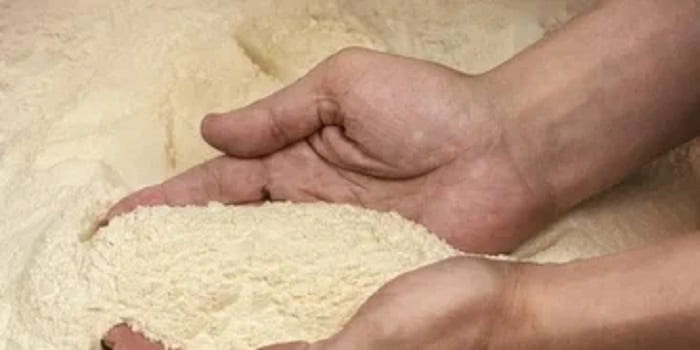
Recycling technology Novozymes BioBased Adipic Acid Sustainability Biodegradable packaging Latex
